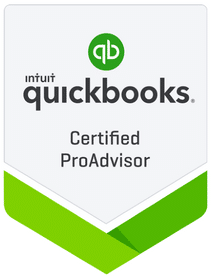- Patrick Roney
- (877) 503-8607
Follow Us :
Follow Us :
Proledge
January 10, 2025
What influences the long-term achievements of market-focused companies? Ask one hundred business owners, and the majority of them will say the quality of the commercialized products and services or the professionalism of internal staff. And there is some truth to it. If you want to make your business stand out from the competition and attract the attention of target audiences, quality will need to transform into your organization’s motto. But, there is a problem. Achieving notable results and improving the competitiveness of your activities will necessitate a substantial depletion of your research and development budget. Something that, long-term, will make your venture vulnerable to external financial pressure and fines from locally-active monetary authorities.
Do you want to mitigate the impact of your financial activities, streamline the internal processes carried out by your employees, and reduce the risks of errors in your financial books? In that case, you will need to utilize either the services of an independent bookkeeper or leverage the professional offerings provided by our agency. In this day and age, the benefits of a collaboration with a bookkeeping firm are apparent, as a tiny error or unintentional omission in your past books might put you into direct conflict with the IRS. After all, as the saying goes, the only two things guaranteed in life are death and taxes.
Are you trying to continue your business activities without attracting unnecessary external pressure? Do you want to optimize your procedures and potentially discover new avenues for monetary optimization? In such a case, you will need to utilize our professional company’s QuickBooks knowledge base. But, if you prefer, you can go for the independent route, in which case you will need to prepare a comprehensive bookkeeping interview that will test the accounting knowledge of your potential future employees.

It’s all about being prepared for the unknown and discovering avenues for fiscal optimization. Sure, you will probably benefit from the necessary knowledge to deal internally with the vast majority of bookkeeping tasks expected of your staff. In fact, that’s the route selected by most SME owners active in North America. But just because you can handle bookkeeping personally, it doesn’t mean you should. Bookkeeping, although not precisely rocket science, is complex and will necessitate the full attention of your employees in order to be implemented correctly without potential errors that might impact your down-the-road financial returns.
Bookkeeping can allow your upper management and CPA to dictate the overall direction of your firm’s financial framework, accurately plan your investment budgets, make precise profitability assumptions, and keep in line with the regulatory guidelines imposed on Texas-based companies. Our professional bookkeeping agency can take care of your account’s administration, survey your past bookkeeping data, potentially identify errors in previous financial statements, and assist your payroll manager and certified public accountant in any professional task required. With that being said, nothing is stopping you from creating an internal bookkeeping department and leveraging the accounting knowledge of freelancers via complex interview questions for bookkeepers.
The QuickBooks knowledge base of an independent bookkeeper or our reputable agency can have a positive impact on your organization’s financial growth perspectives and help you attract investments from private ventures or nationally-present trusts. Not least, a high-quality bookkeeping strategy could be leveraged to ensure the proper allocation of your existing resources and help you learn the accounting jargon relevant to bookkeeping activities. Our team will provide professional QuickBooks training to your employees, help your staff develop a bookkeeper interview, and migrate part of your financial data from the offline medium to the cloud.
Let’s assume you are interested in developing an internal financial recordkeeping department, and you want to hire an independent bookkeeper who will work closely with your CPA. For such a scenario, you will have to prepare a couple of comprehensive interview questions for bookkeepers, starting with the previous background and work experience of the worker you survey. As is the case for all industries, your first question should be about the qualifications of the potential soon-to-be bookkeeper, his educational background or professional experience, and his knowledge regarding the most widely-used bookkeeping applications in the US.
You should also ask the independent bookkeeper questions that can determine his professional expertise and experience in collaborations with firms active in the same industry as you. As an example, during the interview questions for bookkeepers, you could ask the surveyed individual about the latest fiscal regulations modifications in place for Texas-based companies. Likewise, you could tell him to enumerate the most significant differences between account payables and receivables, list the many ways in which he can assist your CPA, and describe how he will guarantee the accuracy of his work.
The interview questions for bookkeepers must, in all cases, be accompanied by a small test in which you assess the competency of the independent bookkeeper during hypothetical scenarios. After all, the work value of an employee will only become apparent during the actual operations necessary for your day-to-day activities. How the bookkeeper handles situations like double payments or bank reconciliations could help you make an informed decision and allow your senior management to find the right person for your internal positions. That said, during the bookkeeper interview, you must also touch upon the financial demands of the individual sitting in front of you.
You can contact us anytime if you have questions or encounter a problem with your bookkeeping program.
If you are looking for quality work, you should be prepared to pay a premium. Did the potential worker applying for your job position nail most of the interview questions for bookkeepers? Did he ace the bookkeeper interview, and are you confident he can be a real asset to your company’s financial recordkeeping necessities? Then, the QuickBooks bookkeeper hourly rate should be the last of your concern. Why is that? Well, for one thing, let’s analyze the financial benefits of utilizing a specialist with experience in his domain. Yes, he will probably charge more, but he will most probably also finish his work tasks much faster than a novice financial recordkeeper.
If he passed your bookkeeping test for hiring and demonstrated advanced knowledge in the financial management operations necessary for your day-to-day tasks, the independent recordkeeper, regardless of his monetary demands, might prove to be a financially advantageous addition to your team. A bookkeeper that charges a lower hourly rate might be enough at the start of your commercial operations. However, after a while, the only thing that truly matters is the quality and rapidity of the completed work.
A less experienced bookkeeper might charge less, but it will also finish his job later, which is something that, paradoxically, might cost you more. Plus, when it comes to complexity, not all tasks are characterized by the same level of complexity. Basic data entry can be performed by any junior bookkeeper worth its salt. However, if you require help with more complex financial tasks and you want to reduce the workload of your CPA, you will need to leverage either the work of an expert who passes your bookkeeper interview or the experience of our bookkeeping firm.

Finding a recordkeeper who passes your interview questions for bookkeepers can be great as long as you benefit from the necessary financial resources to accommodate his financial demands. But, in this economy, finding people who can pass a bookkeeper interview with flying colors will not be easy, as, at least in Texas, the competition for specialized employees is more ferocious than ever. Do you want to work with a bookkeeping firm that can scale its services in line with your private organization’s financial growth perspectives? That’s perfect, as our bookkeeping agency is ready to handle your company’s monetary recordkeeping tasks, regardless of their complexity.
Thanks to our technological resources, the services provided by our bookkeeping firm are cheaper than those of internal employees. Plus, unlike with a new bookkeeping department, when you hire us, you don’t have to worry about supplementary overhead costs. We handle our software subscriptions in-house, we can efficiently leverage the experience of our employees, and we are available either for in-office work or fully remote collaborations. Even if he passes your bookkeeper interview, hiring a new employee will be a complex task that will come bundled with down-the-road financial responsibilities.
The specialist you hire will require a fixed salary, performance bonuses, insurance, and ample office space. On top of that, you will need to provide him with the technological resources necessary to conduct his activity. But that in itself can be restrictive. Are you operating in a volatile industry in which income modifications are all too familiar? If so, using our services makes more sense, as our offerings can be scaled down in moments of market instability. However, with internal employees, scaling down will be challenging, as they will necessitate the same financial commitment regardless of industry modifications.
First and foremost, our company will reconcile your monetary transactions with the ones recorded by collaborative vendors or private financial institutions, audit your internal operations, and handle your account payables and receivables. We will set up your QuickBooks account, migrate a significant percentage of your financial data from the offline medium to the cloud, keep track of your payments by leveraging your preferred online bookkeeping solutions, and create customized invoices that you can utilize for your firm’s day-to-day operations.
On top of that, we can assist your payroll manager with the documentation required to calculate your employee’s benefits and handle the preparation of papers necessary for surprise IRS audits. Sure, we are not CPAs, and we do not claim to possess the knowledge graph of your current accountant. However, we can assist him with the documentation he requires, manage the time-consuming recordkeeping tasks that typically would have affected the productivity of your employees, and generate complex reports that your senior management and CPA can later utilize to dictate the direction of your firm’s ongoing financial framework.
Our team can leverage QuickBooks to generate accurate cash flow statements or balance sheets; we are up-to-date with the fiscal and data protection regulations active in Texas; we can keep track of your inventory, and not least, we can provide professional QuickBooks training and round-the-clock assistance to your staff. Do you prefer to engage in a remote collaboration? If so, we will survey your firm’s financial data from a distance and assist with your urgent inquiries. Do you want us to work alongside you? If so, you can give us the same bookkeeping test for hiring employees and let us demonstrate we have what it takes to handle your company’s monetary data.

A bookkeeping test for hiring staff is necessary when you are thinking of utilizing the services of market-available individuals looking for new work collaborations. Bookkeeping tests are required, as anyone can lie in their CV, and corroborating past work experience with actual on-site skills has become an industry norm. Sure, maybe the person you interviewed passed your initial phone conversation with flying colors, and his CV looks spotless. But how can you be sure he possesses the necessary skills to handle your firm’s bookkeeping data?
Financial recordkeeping is not a joke, as a single mistake in your financial books could have extensive consequences for your ongoing business activities. In-person interviews and bookkeeping tests are necessary when you’re expanding your commercial operations, when you are at the beginning of your professional activities, or when you are transitioning to a new accounting management software that better reflects your company’s monetary operations. Moreover, tests can be utilized if you’re interested in the bookkeeping offerings of an agency like ours. Therefore, knowing how to conduct an interview and test the knowledge of your future financial recordkeeping collaborators should become your priority.


Fill out the form below to sign up to our Blog Newsletter and we’ll drop you a line when new articles come up.

There are lots of businesses that need to find efficient ways to keep track of their finances nowadays, and if you are a business owner, you have experienced this first-hand.

As we all know, automated means of running your business have started to become very popular recently due to all of the perks that it provides. This is not to

So you’re at that point in developing your small business where you’re looking into accounting solutions. If so, you might have started to wonder what’s the best bookkeeping software for

Welcome to bookkeeping 101, the place where we discover how to do bookkeeping effectively, accurately and easily. If you’ve started your small business already or if you’re on the verge

What exactly influences the long-term financial success of American SMEs? Ask 100 business entrepreneurs this question, and you will probably get 100 variations of the same answer. The quality of

Starting a business is not one of the most challenging parts of the business industry, the difficult part emerges when it comes to securing a long-lasting and successful organization. If
Bookkeepers.
Professional. Affordable.
ProLedge is a bookkeeping services firm.
Copyright © 2024 All rights reserved.